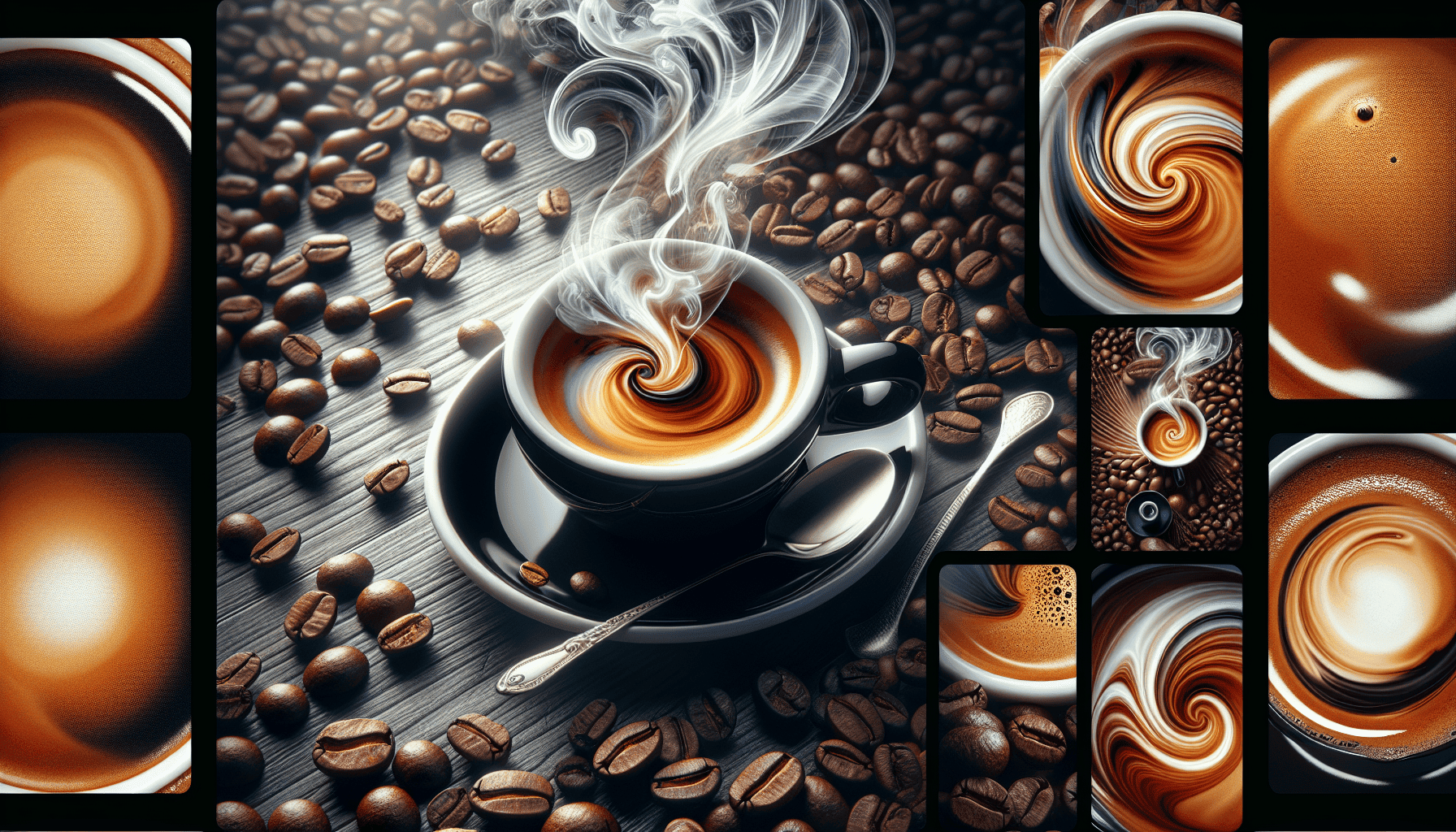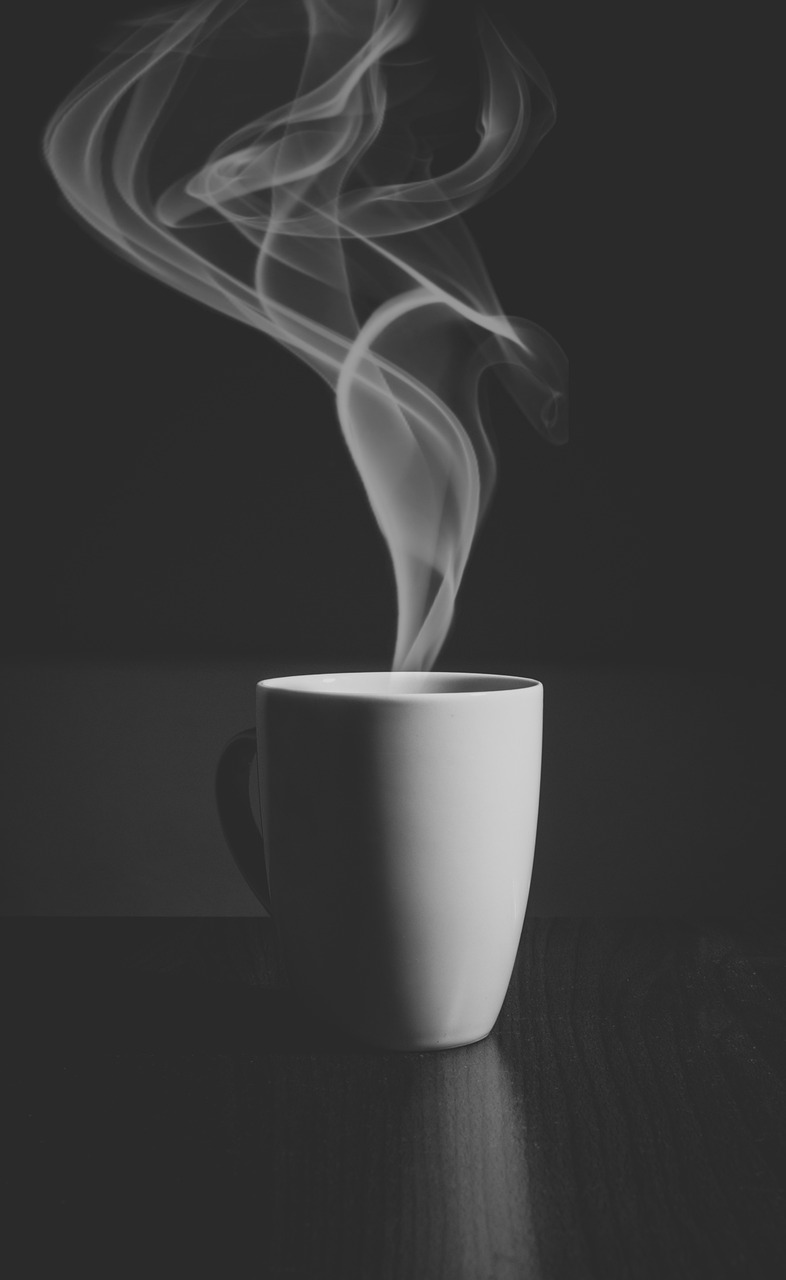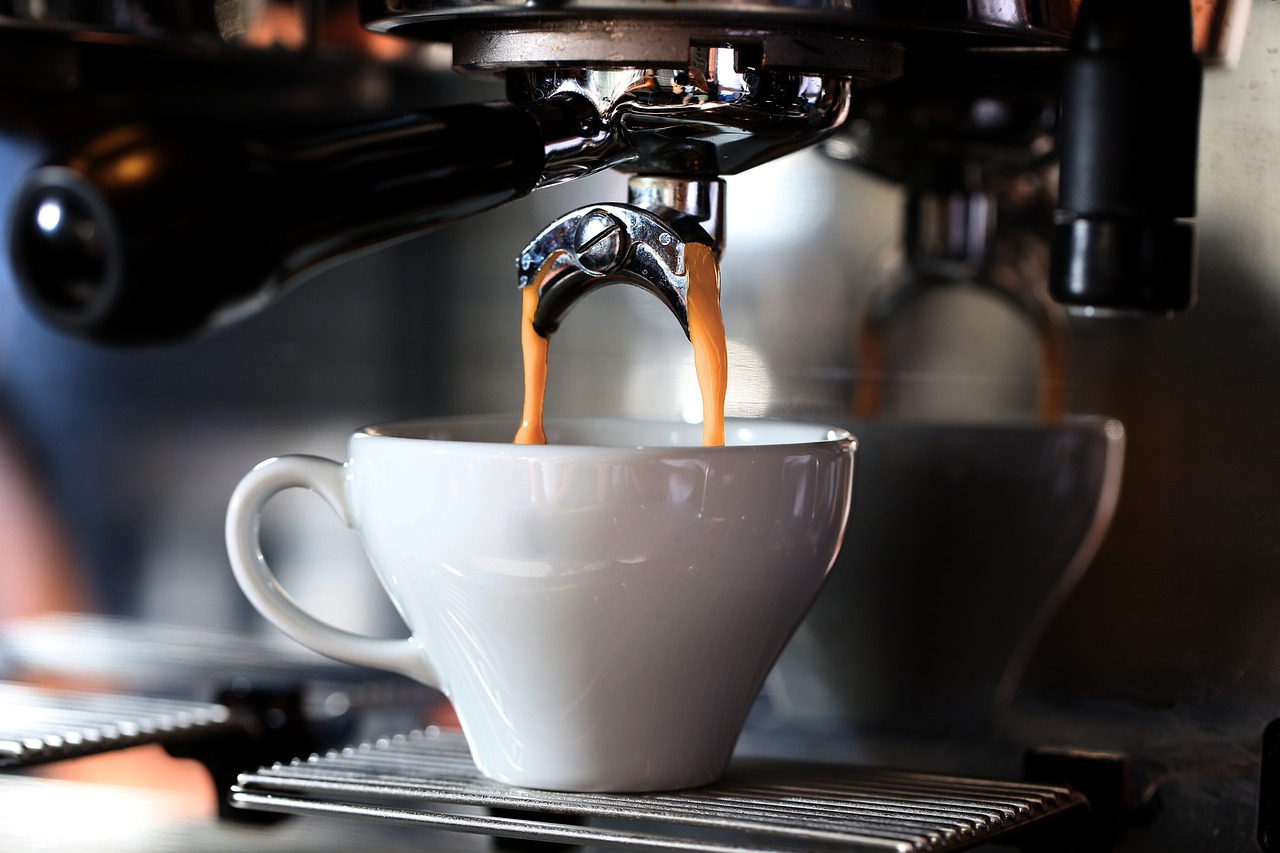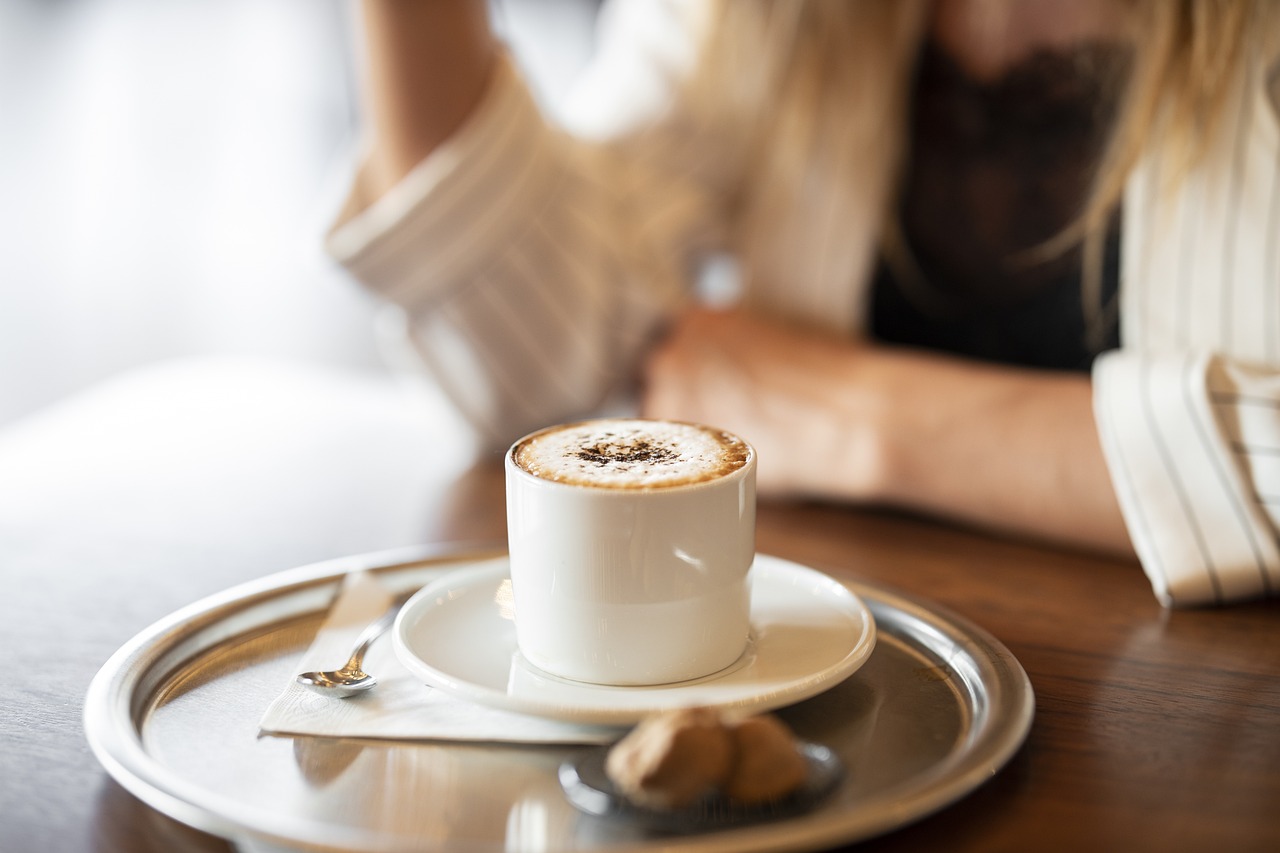How Much Caffeine Is In 1 Shot Of Espresso?

Ever wondered just how much caffeine is packed into a single shot of espresso? Well, prepare to have your curiosity satisfied! In this article, we’re going to explore the caffeine content of one shot of espresso and discover just how this potent little beverage can give you that boost you need to start your day off right. So grab your favorite mug, sit back, and let’s dive into all things espresso and caffeine!

What is a shot of espresso?
Definition of espresso
Espresso is a concentrated form of coffee that is brewed by forcing very hot water through finely ground coffee beans. It is typically served in small, demitasse-sized cups and is known for its rich flavor and strong aroma.
How espresso is made
To make a shot of espresso, the coffee beans are first ground to a fine consistency. The ground coffee is then tightly packed into a small, metal filter basket called a portafilter. The portafilter is then attached to an espresso machine, and hot water is forced through the coffee grounds under high pressure. The result is a concentrated and intense shot of espresso.
Caffeine content in espresso
Varies based on coffee beans
The caffeine content in a shot of espresso can vary depending on the type of coffee beans used. Different coffee beans have different levels of caffeine naturally occurring in them. Arabica beans, which are commonly used in espresso, tend to have less caffeine compared to Robusta beans.
Standard measurement for a shot of espresso
A standard shot of espresso is typically made using 7 grams of coffee grounds and yields approximately 1 ounce of liquid. This is known as a single shot of espresso. However, it is important to note that some people prefer a double shot of espresso, which uses twice the amount of coffee grounds and yields around 2 ounces of liquid.
Factors affecting caffeine content
Type of coffee beans
As mentioned earlier, the type of coffee beans used in the espresso-making process plays a significant role in determining its caffeine content. Generally, Robusta beans have higher caffeine content compared to Arabica beans. Therefore, if you’re looking for a stronger caffeine kick, opting for espresso made from Robusta beans might be the way to go.
Roasting level
The level of roasting can also impact the caffeine content in espresso. Contrary to popular belief, darker roasts actually have slightly less caffeine compared to lighter roasts. This is because the longer roasting time can cause some of the caffeine to degrade. However, the difference in caffeine content between light and dark roasts is typically minimal.
Brewing time
The brewing time can affect the extraction of caffeine from the coffee grounds. In general, a longer brewing time tends to result in a higher caffeine content. However, since espresso is brewed under high pressure and in a short amount of time, the brewing time itself has minimal impact on the caffeine content in a shot of espresso.
Water temperature
The water temperature during the brewing process is crucial for extracting the caffeine from the coffee grounds. The ideal water temperature for brewing espresso is around 195 to 205 degrees Fahrenheit (90 to 96 degrees Celsius). This high temperature ensures proper extraction of the caffeine compounds, resulting in a flavorful shot of espresso.
Average caffeine content in a shot of espresso
Typical range of caffeine content
On average, a single shot of espresso contains approximately 63 milligrams of caffeine. However, the actual caffeine content can vary between 30 to 50 milligrams for a single shot. Keep in mind that a double shot of espresso would have roughly double the caffeine content, ranging from 60 to 100 milligrams.
Comparing espresso with other beverages
While espresso packs a concentrated caffeine punch, it is important to note that it generally contains less caffeine compared to other popular coffee beverages. For example, a standard 8-ounce cup of brewed coffee can contain anywhere from 95 to 165 milligrams of caffeine. Therefore, if you’re looking for a quick caffeine boost without consuming large quantities of liquid, a shot of espresso might be the perfect choice.

Health effects of caffeine consumption
Stimulant properties of caffeine
Caffeine is a natural stimulant that affects the central nervous system, providing a temporary increase in alertness and reducing the feeling of fatigue. By blocking adenosine receptors in the brain, caffeine can promote wakefulness and enhance cognitive function.
Benefits of moderate caffeine intake
Moderate consumption of caffeine, including espresso, has been associated with several health benefits. It can improve mental focus, increase physical performance, and even boost metabolism. Caffeine also has antioxidant properties, which can help protect against certain diseases and promote overall well-being.
Potential risks of excessive caffeine consumption
While moderate caffeine intake is generally considered safe for most individuals, excessive consumption can lead to negative health effects. It can cause symptoms like restlessness, anxiety, rapid heartbeat, and insomnia. Additionally, some individuals may experience digestive issues or increased blood pressure with excessive caffeine consumption.
Individual sensitivity to caffeine
It is important to recognize that individuals may have varying levels of sensitivity to caffeine. Some people can consume high amounts of caffeine without experiencing adverse effects, while others may be more sensitive and experience negative symptoms even with small doses. It’s essential to listen to your body and adjust your caffeine intake accordingly.
How caffeine affects the body
Absorption and distribution in the body
After consuming caffeine, it is rapidly absorbed into the bloodstream through the stomach and small intestine. From there, it is distributed throughout the body, including the brain.
Effects on the central nervous system
Caffeine stimulates the central nervous system by blocking the action of adenosine, a neurotransmitter that promotes sleepiness. This leads to increased alertness and a temporary boost in energy levels.
Impact on heart rate and blood pressure
Caffeine can temporarily increase heart rate and blood pressure due to its stimulant effects on the nervous system. However, these effects are usually mild and temporary, especially in individuals who regularly consume caffeine.
Diuretic properties of caffeine
Caffeine has diuretic properties, meaning it can increase urine production and promote fluid loss from the body. However, the diuretic effect of caffeine is generally mild and does not significantly contribute to dehydration when consumed in moderate amounts.

Factors to consider when consuming espresso
Personal caffeine tolerance
Each individual has a different tolerance for caffeine. Factors such as age, body weight, overall health, and genetics can influence how your body responds to caffeine. It’s important to understand your personal caffeine tolerance and adjust your intake accordingly to avoid any negative effects.
Time of day and sleep quality
Caffeine is a well-known sleep disruptor, and consuming espresso late in the day can interfere with your sleep quality. If you are sensitive to caffeine or have trouble sleeping, it is advisable to limit your espresso consumption in the evening or opt for decaffeinated varieties.
Interaction with medications
Caffeine can interact with certain medications, including prescription drugs and over-the-counter supplements. It may enhance or diminish the effects of certain medications, so it’s essential to consult with your healthcare provider to ensure safe consumption alongside any medications you may be taking.
Pregnancy and caffeine intake
During pregnancy, it is generally recommended to limit caffeine intake. High levels of caffeine can cross the placenta and affect the developing fetus. Pregnant women are advised to limit their caffeine intake to a maximum of 200 milligrams per day, which is equivalent to about one shot of espresso.
Overall diet and lifestyle
While espresso can be a part of a balanced diet, it’s important to consider your overall lifestyle and dietary choices. Too much reliance on caffeine for energy can indicate underlying issues with sleep, stress, or general well-being. It’s essential to maintain a healthy lifestyle overall and not solely rely on caffeine to compensate for other areas that may need attention.
Alternative options for caffeine lovers
Decaffeinated espresso
If you enjoy the flavor and ritual of espresso but are looking to minimize your caffeine intake, decaffeinated espresso is a great option. It undergoes a process where most of the caffeine is extracted from the coffee beans, resulting in a beverage with significantly less caffeine content.
Other coffee drinks with lower caffeine content
If you prefer a larger volume of coffee without an excessive caffeine buzz, there are various options available. For instance, opting for a larger cup of brewed coffee or trying coffee drinks with milk, such as lattes or cappuccinos, can provide a milder caffeine boost.
Non-coffee alternatives
For those who enjoy the ritual of sipping a warm beverage but prefer to avoid caffeine altogether, there are plenty of non-coffee alternatives available. Herbal teas, such as chamomile or peppermint, can be soothing and enjoyable without the stimulating effects of caffeine.

Conclusion
Understanding caffeine content in espresso
Being aware of the caffeine content in a shot of espresso can help you make informed choices about your daily caffeine intake. While espresso is known for its strong and concentrated flavor, it typically contains less caffeine than other coffee beverages.
Making informed choices based on personal preferences and health considerations
Remember to consider your personal caffeine tolerance, the time of day you consume espresso, and any potential interactions with medications or health conditions. It’s important to listen to your body and make choices that align with your preferences and overall health goals. Enjoy your shot of espresso responsibly and savor the rich flavors it has to offer.
